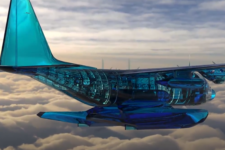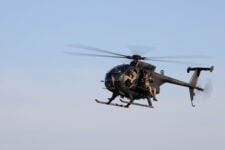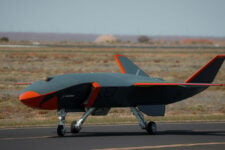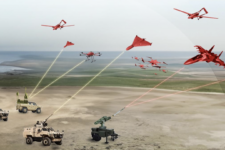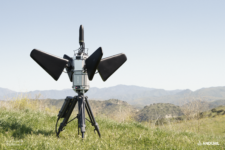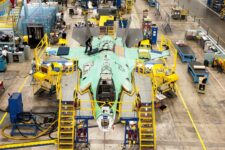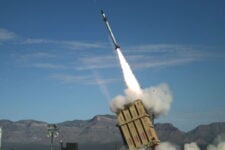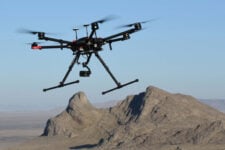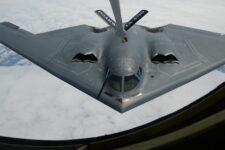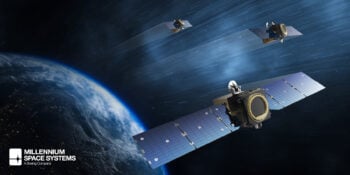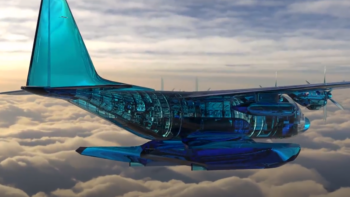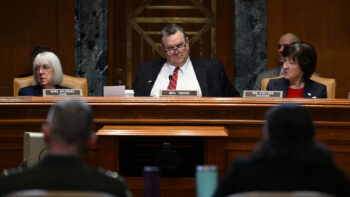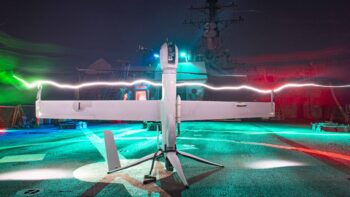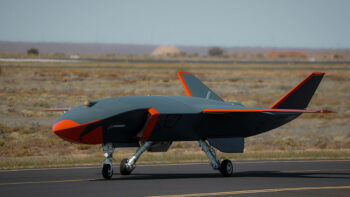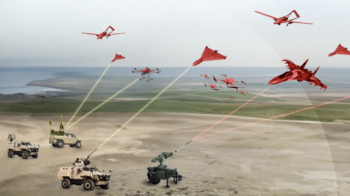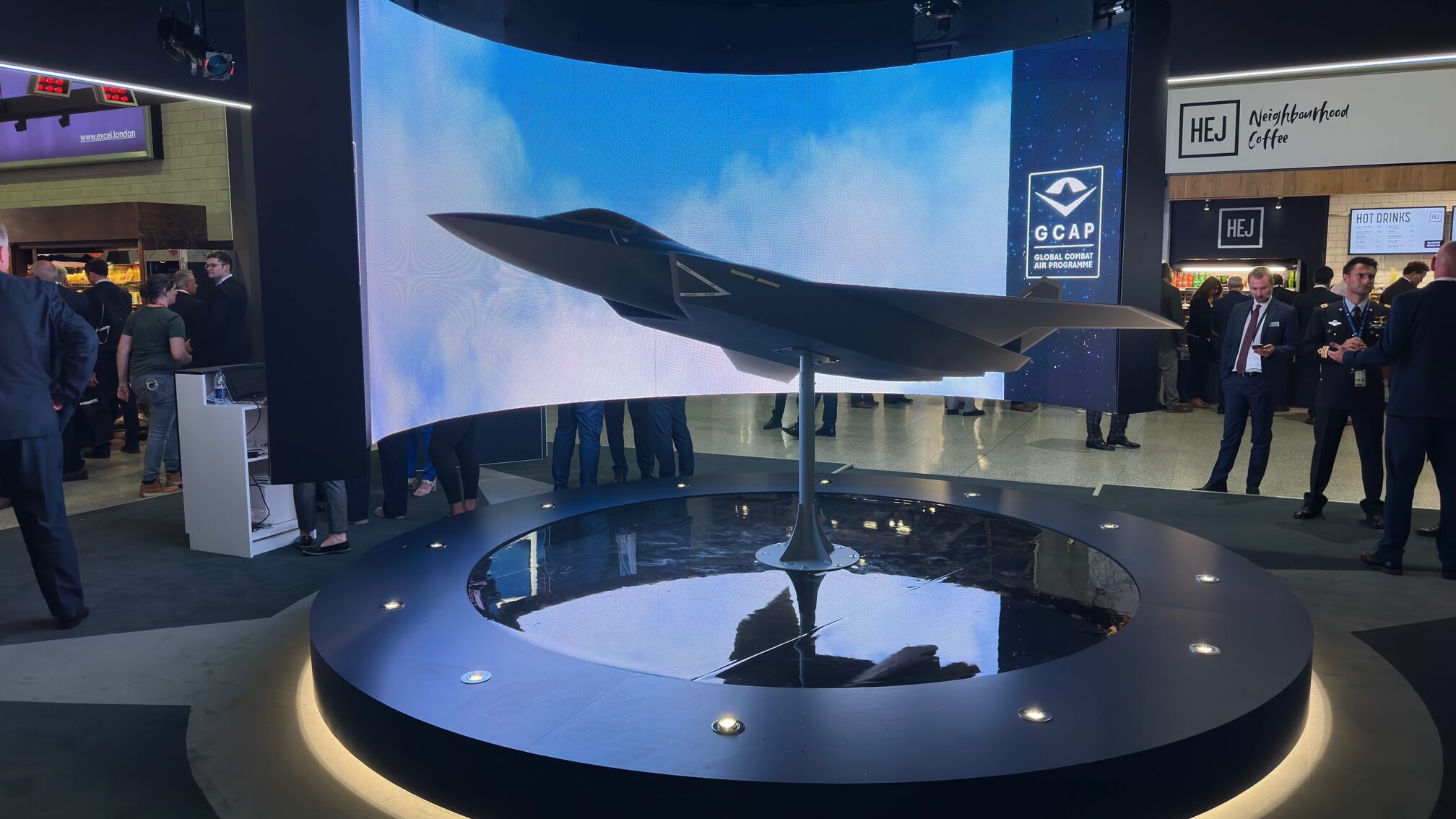
A Global Combat Air Programme (GCAP) core vehicle concept on display at DSEI, London (Breaking Defense)
BELFAST — The United Kingdom has not shared how it plans on developing and delivering new technologies tied to the sixth generation future fighter and associated system of systems known as the Global Combat Air Programme (GCAP) with Italian manufacturer and partner Leonardo, according to company CEO Roberto Cingolani.
Led by Italy, Japan and the UK, GCAP is set to launch its “core platform” or next generation fighter plane development phase next year, but a frustrated Cingolani told reporters that he has still not seen “anything specifically as a capability from the UK” and suggested the roles of industry partners were not made “very clear” from a competence assessment, designed to define manufacturing responsibilities.
He said work with partners must be “transparent” and “collaborative,” adding “it’s impossible to have a 20-year-long consortium with the idea that we don’t share the information.”
For a start, the joint team “should make a serious competence assessment, and then I think there will be surprises,” he said during a press briefing last week to launch Leonardo’s 2024-2028 industrial plan.
He appeared to question UK secrecy, suggesting London has been unwilling to share how it will contribute to developing system of systems-type aircraft and technology, including how sixth generation crewed fighter jets will eventually link and interconnect with adjunct aircraft and artificial intelligence (AI) capable combat cloud networks to support multi-domain operations.
“Let’s talk about system of systems,” said Cingolani. “For me, the competence assessment means that I want to see what is your capability in the algorithms, having high-performance computing, cloud computing, AI algorithms, capabilities, swarm intelligence — and I didn’t see anything like that [from the UK side]. I only heard that ‘we’re doing this with another state.’ Okay, this is not a competency assessment.”
Asked specifically about the issue of not sharing system of systems information with Leonardo, the UK MoD responded with broad GCAP talking points, including past announcements, like trilateral partners “ready to launch the development phase in 2025.”
‘Lot Of Work To Do With GCAP’
Cingolani claimed that it is “nonsense to create a sixth-generation aircraft, just forgetting that it is born to be a system of systems” project too, hinting that the latter has been overlooked.
If participating nations just want a next-gen platform, he said, that “already exists — it is called F-35 and can be modified easily.”
“So I think we should be very serious in analyzing the [GCAP] technical requirements.”
He explained that Leonardo can contribute to system of systems technology developments and said he made such a point clear to Japanese officials when he met with them in December 2023.
“I think we shared this point of view,” he added, but warned that there is still “a lot of work to do with GCAP” generally.
Leonardo’s focus on system of systems technology research includes providing 10 universities with funding to commission studies on low observability concepts, machine learning, AI for autonomous flight, drone swarm flight management, new propulsion systems and energy storage, according to company literature.
🔴#LDO_PR The Board of Directors, chaired by Stefano Pontecorvo, has unanimously approved the 2024-2028 Industrial Plan.
🗓️Today #Leonardo presents the details of its Industrial Plan to the financial community, including 2024 Guidance and medium-term financial targets.… pic.twitter.com/shXyGDJjHx
— Leonardo (@Leonardo_live) March 12, 2024
Leonardo, the UK’s BAE Systems and Japan’s Mitsubishi Heavy Industries are GCAP’s three leading industry partners. Leonardo’s British business subsidiary is also tied to the program and makes radars for the Eurofighter Typhoon program.
Other GCAP Italian suppliers include General Electric subsidiary and engine maker Avio Aero, Electronic Warfare (EW) manufacturer Elettronica Group and MBDA Italia, an offshoot of the European missile maker.
In January 2023, Italian GCAP industry partners also signed a contract in collaboration with the Italian MoD to deliver the next phase of the sixth generation fighter platform.
The aircraft will replace British and Italian fourth generation Eurofighter Typhoons and Japanese F-2 platforms with entry to service scheduled in 2035. A GCAP fighter jet demonstrator is planned to make its first flight in 2028.
Leonardo Looks Ahead
Elsewhere, Leonardo’s new 2024-2028 industrial plan aims to increase company orders by 17 percent from this year’s planned target of €19.4 billion ($21 billion) to €22.6 billion ($24.5 billion) in 2028, by focusing on space, cyber, digitalization investments and company restructuring.
The manufacturer said it also plans on cutting 100 legacy and underperforming products from its electronics division within one to two years, equivalent to 20 percent of the overall electronics product line.
On the aerospace front, “most” aircraft, said Cingolani, will have a digital twin by the end of 2028, an ambitious target with only 10 percent paired with digital twins currently.
The company is also targeting savings of €1.8 billion ($1.95 billion) through 2028, largely through supplier payment changes and driving “efficiencies” like restructuring procurement, travel, energy, real estate and information technology and leaving a number of programs including the Skydweller solar powered UAS effort.
SOCOM tables amphibious MC-130J ambitions: Official
The command carried out steps like hydrostatic and wind tunnel tests, but are now “kind of hitting a pause” on implementing a water landing capability due to budget concerns.
